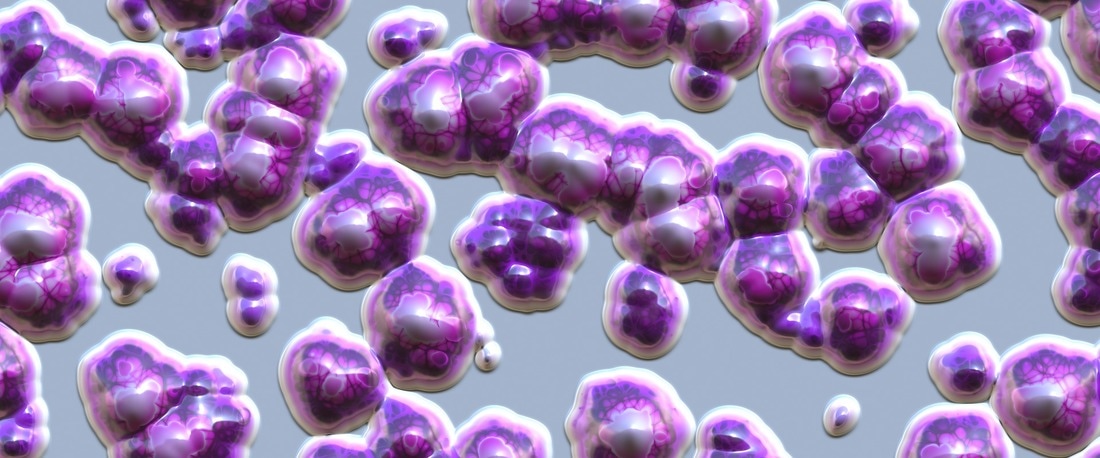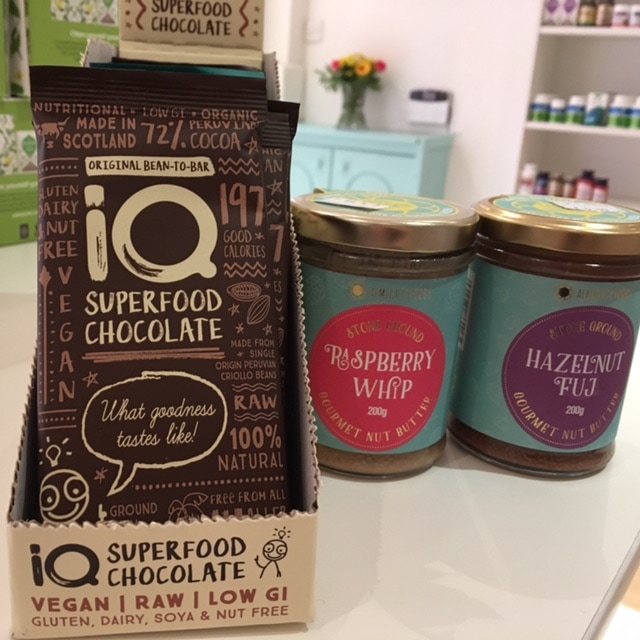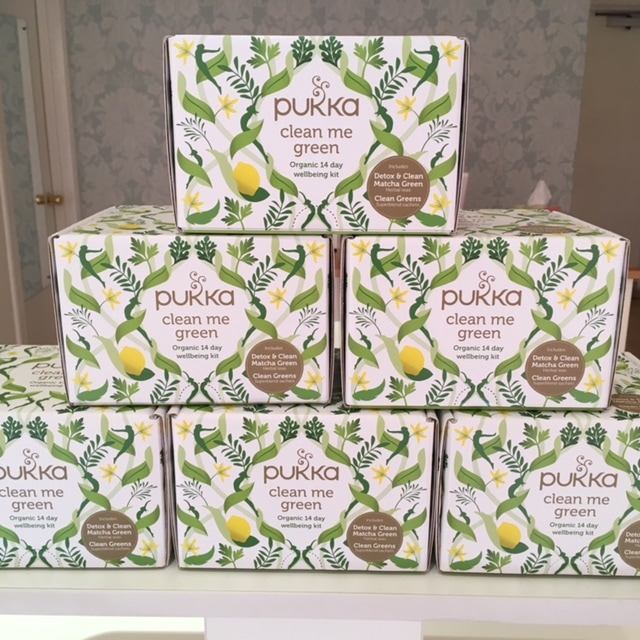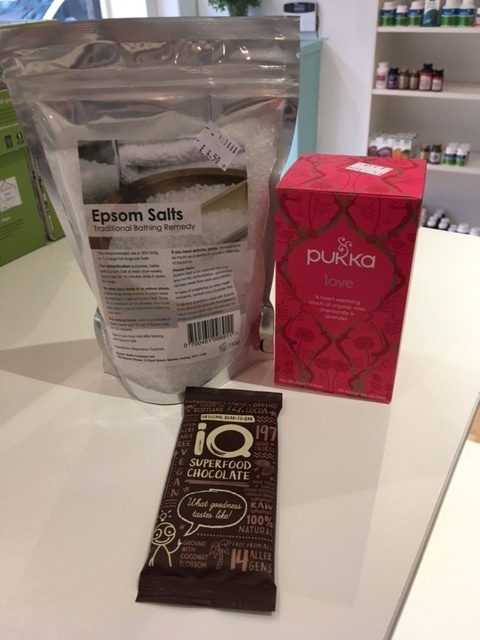|
Did you know that magnesium is an essential mineral for cellular health and over 300 biochemical functions in the body? As a result, deficiencies of this vital nutrient can create all kinds of health problems. Health complaints which magnesium deficiencies are commonly associated with include hormonal imbalance, behavioural disorders, mood swings, insomnia, fibromyalgia, chronic fatigue, migraine headaches, and type 2 diabetes. It is now estimated that a staggering 80% of people are deficient in this vital nutrient. What has led to widespread magnesium deficiency? The main causes of magnesium deficiency are gastrointestinal and renal losses. However, you can also lose magnesium through excessive sweating, every day movement and stress. Even if you regularly consume vast quantities of magnesium rich foods such as spinach and swiss chard, you still may not be receiving the levels of magnesium required for optimal health. This is because soil depletion has lowered the amounts of magnesium present in crops and magnesium has been stripped from processed foods. In addition, the increasing consumption of antibiotics both for medical usage and in the food chain has stripped our guts of the good bacteria necessary for proper digestion and absorption of vitamins and minerals. As the number of people with digestive disorders such as leaky gut has risen, as well as autoimmune conditions such as coeliac disease which inhibits the absorption of nutrients, this also makes it harder for people to absorb vitamins and nutrients such as magnesium. It may therefore be easier for people with these kinds of digestive complaints to absorb vitamins and minerals transdermally through the skin rather than the gut. BetterYou have created a great range of high quality magnesium oil sprays and bath salts which are great for people with these kinds of issues. What are the benefits of supplementing with magnesium? From regulating the heartbeat rhythms to helping neurotransmitter functions, magnesium is a vital nutrient for human health. There are numerous studies which have pointed to the benefits of supplementing with magnesium in conditions such as migraine, type 2 diabetes, muscle aches, depression and more. For example, a study in the Expert Review of Neurotherapeutics found that taking 300 milligrams of magnesium twice a day reduced the frequency of migraine headaches. Whilst another study in MMW Fortschr Med has found that people under mental and physical stress can benefit from a daily intake of magnesium to prevent symptoms of deficiency such as anxiety, depression, restlessness and insomnia. Magnesium can also aid digestion, and relieve constipation as it relaxes the muscles in the digestive tract. How do I know if I am deficient? If you are experiencing symptoms such as muscle aches or spasms, poor digestion, anxiety, headaches, a twitchy eye or insomnia it may be a sign that your levels of this mineral are low. Of course there may be other reasons for this, which is why if you are really concerned it is always best to speak with a Nutritional Therapist who will be able to assess your case and perhaps make additional or more appropriate suggestions. Magnesium on its own is not always a miracle cure! Particularly if there are other gastrointestinal issues or food intolerances. Another sign that you are low might be if you regularly crave chocolate which contains magnesium. As it has become the typical punchline that women crave chocolate around menstruation, it has been suggested that this is because chocolate contains magnesium which alleviates some of the symptoms associated with PMS such as pain and mood swings. However, dark chocolate contains far more magnesium than milk chocolate, so if you are after some magnesium rich chocolate it would be a dark chocolate which contains at least 70% cocoa solid (and preferably raw!) that I would go for! If you are interested in learning more about Magnesium supplementation, please ask to speak to our clinically trained Nutritional Therapist Beverley Sarstedt who will be able to advise you and offer suggestions on what is best in your individual case. References: Christina Sun-Edelstein and Alexander Mauskop. “Role of magnesium in the pathogenesis and treatment of migraine.” Expert Review Of Neurotherapeutics Vol. 9 , Iss. 3,2009 E. Wienecke and C. Nolden. “Long-term HRV analysis shows stress reduction by magnesium intake”. MMW Fortschr Med. 2016 Dec;158(Suppl 6):12-16. Epub 2016 Dec 8.
1 Comment
Last week we covered Probiotics in Pregnancy and touched on how supplementing babies can help reduce the incidence of eczema and other allergies. But what about other common complaints in infancy? Can probiotics help there too? Let's look at some of the usual suspects: Colic is something that has troubled parents forever! The worst thing about colic is that we don't really know exactly what causes it. Having said that, anyone who has ever tried to comfort a colicy baby knows it's usually tummy trouble so trying a probiotic would make sense. A recent study now shows that introducing a probiotic has seen crying in infants fall by at least 50%. Another nightmare for new parents is reflux. (Not to be confused with 'happy pukers' it's totally normal for breastfed babies in particular to guzzle a little too much and then puke out the extra. It's part of their self regulation and why there is now a link between breastfeeding and reduced childhood obesity. If baby seems fine after they vomit you've probably got one of these!) Probiotics can be helpful here too. An Italian study has shown that probiotics can increase gastric emptying and therefore decrease the frequency of regurgitation. Constipation is also a common digestive problem in small children. Studies have shown that taking a probiotic can increase stool frequency and improve the consistency of stools. It has also been found to reduce the frequency of faecal incontinence and significantly reduce tummy pain. Severity and duration of boughts of diarrhoea have also been reduced by taking a probiotic. One finnish study found that the probiotics successfully colonized the gut and reduced the duration of watery diarrhoea usually associated with the rotavirus. In the ProChild study children were given either a placebo or Proven's Fit for School probiotic for six months. Children taking Fit for School had:
If you would like to know more or to discuss your probiotic needs with Beverley our registered Nutritional Therapist just pop into the shop: Nourishing Insights, 44 St Andrew Street, Aberdeen, AB25 1JA. References: A. Bird Schreck et al. (2016) Probiotics for the Treatment of Infantile Colic: A Systematic Review. Journal of Pharmacy Practice p1-9. F.Indrio et al. (2011) Lactobacillus reuteri accelerates gastric emptying and improves regurgitation in infants. European Journal of Clinical Investigation. 41(4) p 417-422. N. Bekkali et al. (2007) The role of a probiotics mixture in the treatment of childhood constipation: a pilot study. Nutrition Journal. 6(17) M. Tabbers et al. (2011) Is Bifidobacterium breve effective in the treatment of childhood constipation? Results from a pilot study. Nutrition Journal. 10(11) A.V. Shornikova et al (1997) Bacteriotherapy with Lactobacillus reuteri in rotavirus gastroenteritis. The Paediatric infectious disease Journal 16(12) p 1103-1107. I. Garaiova et al. (2015) Probiotics and vitamin C for the prevention of respiratory tract infections in children attending preschool: a randomised controlled pilot study. European Journal of Clinical Nutrition. 69 p.373-379. Last week we looked at the power of probiotics and the fact that we get our good bacteria from our mother when we are born. As the baby travels down the vaginal canal the baby is covered in secretions which contain their mother's flora. This is then swallowed by the baby and that bacteria colonizes their gut and forms the beginning of their immune system. This is why "seeding" (taking gauze soaked in this fluid and wiping it on the babies face) is becoming increasingly discussed as a way of getting that first colony into the baby after a C-section.
Think you don't need to take one? Let's look at some of the things that compromise gut flora. - Birth Control (Most women are on this prior to falling pregnant.) -Antibiotics (many women suffer with UTI's during pregnancy). -Antacids (how many women do you know who slept with rennies by the bed and spent the last trimester knocking back the gaviscon?) -Pesticides (Unless we eat an entirely organic diet, most of us are exposed to these through the diet). -Household Cleaning products (One word....Nesting!!) -The list goes on! Still not convinced? Well let's look at the benefits of taking probiotics for you and your baby both in vitro and beyond. A 2010 Scandinavian study showed that probiotics significantly reduced the risk of Gestational Diabetes and that coupled with proper nutritional support reduced the risk of foetal overgrowth associated with it. This of course has the knock on effect of reducing the need for medical intervention during delivery. A further study has shown that in addition to reducing hypertension (high blood pressure) and inflammation, intake of probiotics also significantly reduces the risk of pre-eclampsia and spontaneous preterm delivery. Those who took probiotics daily had the lowest risk factors when compared with those who consumed them only weekly or monthly. Taking probiotics prior to giving birth and then giving them to the infant for the following 6 months has been shown to reduce the incidence of eczema. The Swansea Baby Trial supported these results. Babies given Lab4b (the probiotic used in the Proven range) were 57% less likely to develop allergic eczema than those receiving the dummy product. It also showed that children whose mothers had probiotics in the last trimester along with taking them for the following 6 months were 44% less likely to develop allergic reaction to the common allergens including pollen, cow’s milk, egg, and house dust mite. The Swansea study also concluded that probiotics are safe and that taking them had no adverse effects to mum or baby. A Study from MIT has also showed that supplementation with probiotics increases the production of love hormone oxytocin. This in turn leads to increased immunity with the infant exhibiting robust skin and mucosae, rapid wound healing and resistance to infection. If you would like more information or to find out which probiotic is the right one for you pop in and see us. Nourishing Insights, 44 St Andrew Street, Aberdeen, AB25 1JA. References: https://www.umcg.nl/EN/corporate/News/Paginas/Antacid-use-dramatically-reduces-healthy-gut-microbial-flora.aspx http://lab4probiotics.co.uk/the-swansea-safety-in-newborns-study/index.html http://lab4probiotics.co.uk/the-swansea-baby-trial/index.html R.Luoto et al. (2010) Impact of maternal probiotic-supplemented dietary counselling on pregnancy outcome and prenatal and postnatal growth: a double-blind, placebo-controlled study. British Journal of Nutrition. 103 p. 1792-1799. A. Brantsaeter et al. (2011) Intake of Probiotic Food and Risk of Preeclampsia in Primiparous Women: The Norwegian Mother and Child Cohort Study. American Journal of Epidemiology. 174 (7) p.807-815 K. Kukkonen et al. (2007) Probiotics and prebiotic galacto-oligosaccharides in the prevention of allergic diseases: a randomized, double-blind, placebo-controlled trial. Journal of Allergy and Clinical Immunology. 119(1) 192-198. S.E. Erdman and T.Poutahidis. (2014) Probiotic ‘glow of health’: it’s more than skin deep. Beneficial Microbes. 5(2) p. 109-119. M.Murray &J.Pizzorno (2012) The Encyclopedia of Natural Medicine. Atria. New York. Probiotics seem to be something that everyone is talking about these days, but what exactly are they? What do they do? Where do they come from? How do I know if I need one?
'Probiotic' literally means 'for life'. More often are defined as being "viable microorganisms that have a beneficial effect in the prevention and treatment of specific pathologic conditions when they are ingested". Basically they are the good bacteria that should be found in your gut. Did you know that approximately 85% of your immune system is found in the gut? This is because it is the job of these good bacteria to be the gatekeepers to our body. They are our first defence against foreign bodies, preventing colonization by viral and bacterial pathogens. Wondering where you got your good bacteria from in the first place? Your mum! During a vaginal delivery the baby is covered in secretions which contain it's mothers bacteria. The mother passes her gut flora on to her baby and this in turn colonizes their gut. From that day forward we are constantly changing our gut flora depending on what we ingest. We are exposed to coughs, colds, travel, different foods, medications and all of these impact our gut ratio between good and bad bacteria. Sat there thinking well my granny hasn't taken a probiotic and she never gets ill at 96! The truth is that she has probably had her fair share of 'probiotics' but they just didn't call them that then. Traditionally fermented foods like sauerkraut, kefir, kombucha, raw yoghurt and even beer were all sources of good bacteria. In the days before fridges and supermarkets, fermentation was a way of preserving produce to survive long winters. These days everything goes in the fridge, crops are sprayed with pesticides which just like the antibiotics you get from the doctors are not selective about whether the bacteria they are killing is good or bad. Most supermarket products have also been pasteurised to extend shelf life and prevent outbreaks of harmful bacteria. This means that the good bacteria in traditionally fermented foods is killed along with any bad that may have been present. The good news is that there is now a move back towards traditional probiotics with kefir, kombucha, and sauerkraut gaining in popularity. Thinking about stocking up on those yoghurt drinks from the supermarket? Think again! Did you know that many of them have more sugar per 100g than fizzy pop? One of the easiest ways to up your good bacteria is to take a probiotic supplement many of which also contain prebiotics (food not absorbed by the host that supports the growth of good bacteria). So do you need a probiotic? The reality is that most of us should take a probiotic supplement even just in the short term. Why? The vast majority of us have at some point done at least one of the following all of which negatively effect your gut flora: taken an antibiotic; suffered from colds and viruses; have IBS or IBD; taken the contraceptive pill; taken steroids; travelled abroad; suffer from or have a family history of auto immune conditions e.g. under-active thyroid, diabetes, lupus, psoriasis, etc; or allergenic conditions e.g. food allergies and excema. There is a wealth of research out there which clearly demonstrates the huge role that probiotics have in supporting our immune system and preventing disease. A recent study examining the role of probiotics in the reduction of diabetes states that probiotics contribute to a reduction in inflammatory response and oxidative stress. This leads to increased insulin sensitivity and a reduction in the autoimmune response. Increasingly well known is the fact that our gut micro biome influences our mental health with neurotransmitters manufactured in the gut including serotonin and GABA. Allergenic diseases have increased over the last 40 years in industrialized nations but NOT in the developing world. Put simply we are just too clean, our homes and farms are sprayed to within an inch of their lives, we eat processed foods and we aren't exposed to the diseases we once were. All of this impacts on our gut flora and prevents the normal responses to allergens from developing properly leading to an increase in disease. Children with food allergies have been found to have an imbalance between good bacteria and potentially harmful ones. The same has been observed in a study of children with atopic eczema. So which one should I take? Well firstly you need to find a probiotic which is scientifically proven to survive gut acidity. Then the answer is it really depends on you and what your individual needs are. If you are looking to support mental health a probiotic with bacterial strains proven to support depression and anxiety would be a good start e.g. lactobacillus acidophilus Rosell-52 and bifidobacterium long rosell 175 found in Optibac for everyday. However, there are a variety of ranges designed specifically for different needs: travel abroad, when you're taking antibiotics, pregnancy, breastfed babies, bottlefed babies, managing cholesterol levels, one for women for targeting the intimate flora, the list goes on. Still not sure, or just want to know more? Pop into the shop and have a chat with us. References: R. Rolfe. (2000) The Role of Probiotic Cultures in the Control of Gastrointestinal Health. Journal of Nutrition. 130 p.3965-4025 M.Geuking et al. (2014) The interplay between the gut microbiota and the immune system. Gut Microbes 5(3) p. 411-418 P. Kirjavaninen et al. (2001) Characterizing the composition of intestinal microflora as a prospective treatment target in infant allergic disease. FEMS Immunology & Medical Microbiology. 32 (1) p. 1-7 B. Bjorksten et al. (1999) The intestinal microflora in allergic Estonian and Swedish 2-year-old children. Journal of the British Society for Allergy and Clinical Immunology. 29(3) p 342-346. A.Gomes et al. (2014) Gut microbiota, probiotics and diabetes. Nutrition Journal. 13(60) http://www.optibacprobiotics.co.uk/faq/why-consider-optibac-probiotics-over-probiotic-yoghurt-drinks Spring is a time for new beginnings, here at Nourishing we are following in the Snowdrops footsteps and blooming a little earlier. Hoping to open "officially" on the 11th of February with our sign unveiling we will be open for business over the next few days so feel free to pop in for a chat and a browse. Located at 44 St Andrew Street, Aberdeen, AB25 1JA We are just around the corner from John Lewis. Even without the sign you will still find us, just look for the turret! Opening Times: Tuesday, Wednesday & Friday 10am - 6pm Thursday 10am - 8pm Saturday 10am- 5pm Closed Sunday & Monday Our new shop and wellness centre has a wide range of supplements, natural cosmetics, health foods and teas to help support you reach your health goals. We are especially excited to stock a selection of Scottish products including: IQ superfood chocolate (scientifically proven by the Rowett Institute and RGU to have "superior nutritional value compared to other high cocoa content chocolate bars") and Almighty Food's stone ground, sprouted nut butters. If you were looking for an ethical and healthier version of Chocolate Spread their Hazelnut Fuj is definitely the answer! We also have Pukka's new Clean Me Green 14 day organic wellbeing kit the perfect thing to reignite your wellness campaign if you fell of the wagon in January. (We don't judge those dark nights are enough to make the best of us reach for a slice of cake!!) Wondering what to buy your loved one for Valentines Day? How about an evening of relaxation with a hot bath using our magnesium filled Epsom salts, followed by a warming cup of Pukka Love Tea and some delicious IQ or Ombar chocolate. In addition to Nutritional Therapy with Beverley we will also be offering Massage Therapy with Harriette including Oncology Massage, Natural Facelift Facials and Baby Massage Classes. To book a consultation call us on 01224 969637.
We look forward to welcoming you soon. Harriette and Beverley xx |
Amazon Associates DisclosureNourishing Insights is a participant in the Amazon EU Associates Programme, an affiliate advertising programme designed to provide a means for sites to earn advertising fees by advertising and linking to Amazon.co.uk. Archives
December 2023
|
WHAT OUR CLIENTS ARE SAYING“I did Nutritional Therapy with Beverley and it was life changing. I highly recommend it!” Allison Blakely (Glasgow)
|
Contact Us |









